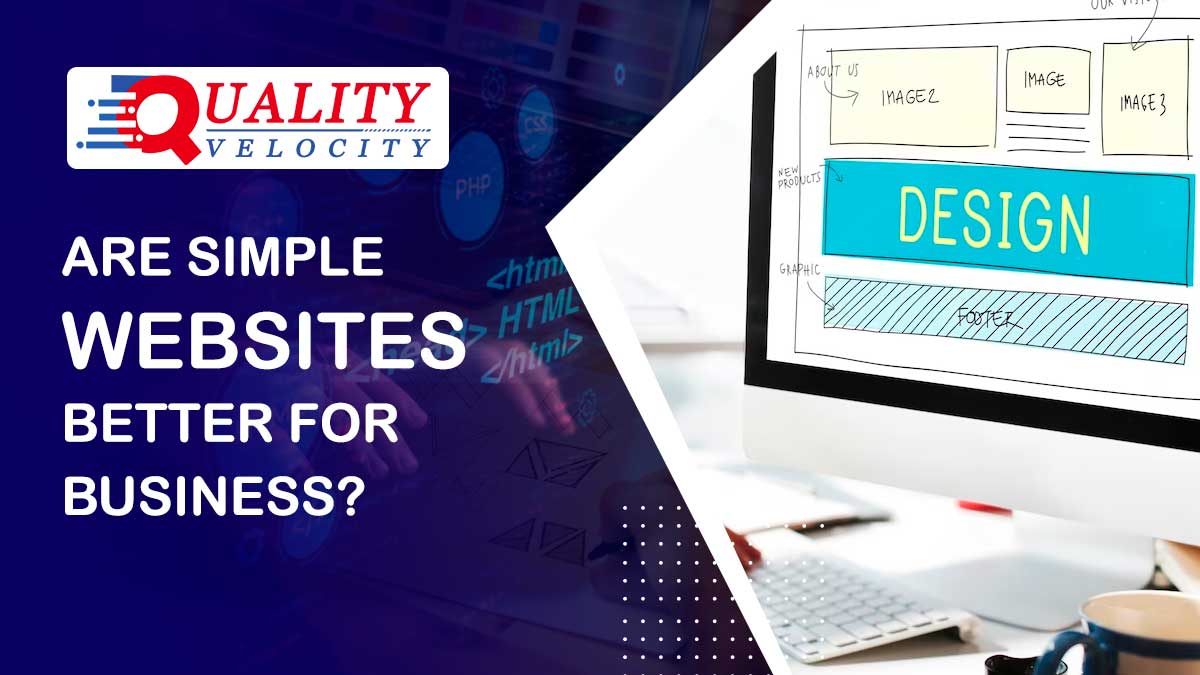There is growing discussion on whether adding features and functionality adds value or whether basic websites are preferable for businesses as web design technology raises the bar for what can be accomplished on a realistic budget.
Whether or not simple websites are better for business relies on a number of variables, such as your industry, target demographic, business objectives, and the particular functionality and content your website needs.Both simple and complex websites have their advantages and disadvantages, and the choice between the two should be based on your unique needs.
Advantages of Simple Websites:
Faster Loading Times: Simple websites with minimal graphics and fewer features tend to load faster. This can lower bounce rates and enhance user experience.
Easy Navigation: Users can locate the information they need more quickly on simple websites since they frequently offer simple navigation.
Clarity of Message: A simple design can help convey your core message more effectively, avoiding clutter that might distract users.
Mobile-Friendly: Designs that are straightforward are frequently more responsive and mobile-friendly, guaranteeing a consistent user experience on various devices.
Cost-Effective: Designing, developing, and maintaining simpler websites can be done more quickly and at a lower cost.
Concentrate on information: When there are fewer design components, the information stands out more and you may more successfully promote your goods, services, or message.
Advantages of Complex Websites:
Functionality: Complex websites can offer advanced features like e-commerce capabilities, interactive tools, membership systems, and more.
Customization: Sophisticated websites can be made to meet certain requirements and provide a distinctive user experience that is consistent with your brand.
Scalability: If you anticipate your website's needs growing in the future, a more complex structure can accommodate expansion.
Competitive Edge: Having a more complicated website may provide you an advantage in fields where digital innovation is essential.
Visual Impact: A more complex design could be advantageous for companies that depend on visual appeal, like design or photography.
Considerations:
User Experience: The user's experience should always come first, no matter how simple or sophisticated the solution is. The website should be user-friendly and beneficial to users.
Audience: Think about who you want to reach. Do they want a simple browsing experience, or are they tech-savvy and anticipate sophisticated features?
Business Objectives: The reason behind your website matters. For informational purposes, a basic design may be adequate. If the platform is for sales or e-commerce, you may require additional sophistication.
care: While more complicated websites may require more frequent updates and assistance, simpler websites may require less continuous care.
Branding: Your website should reflect your brand's identity. Certain brands work better with simpler designs, such as minimalist or modern ones, whereas more complex designs work better for other brands.
In conclusion, depending on your objectives and target audience, both straightforward and intricate websites can be successful for your company. The secret is striking a balance between meeting your business objectives and providing a satisfying user experience. It is recommended to speak with a web developer or designer to figure out the best course of action for your particular company and sector.





